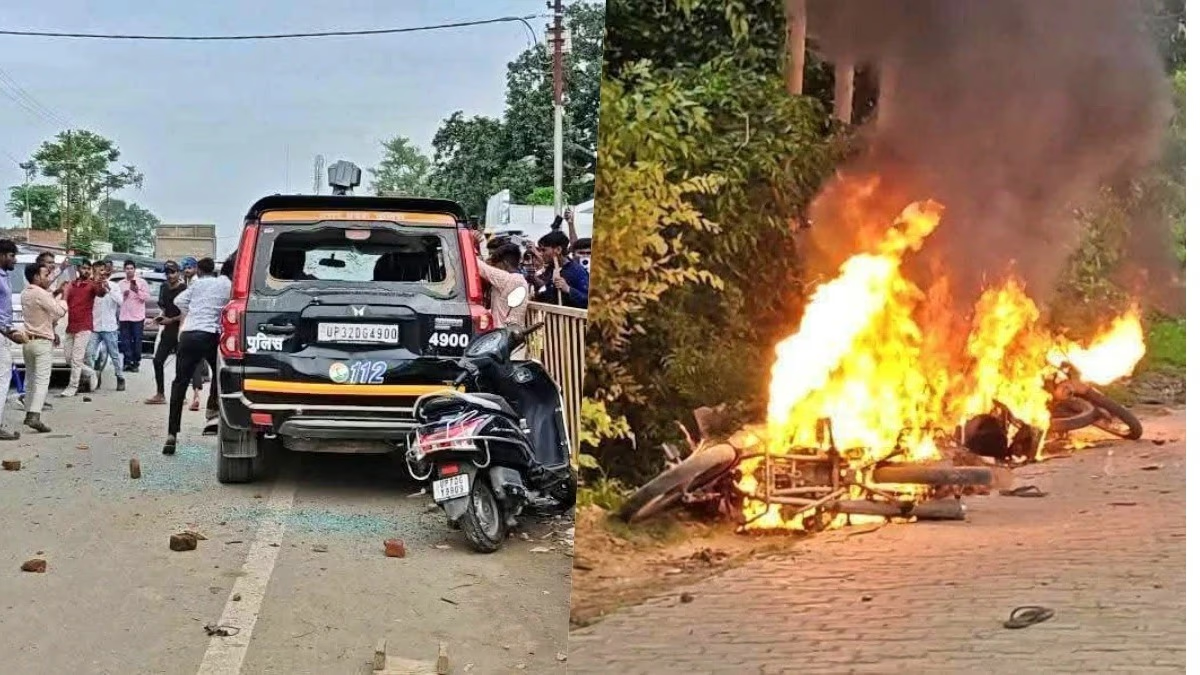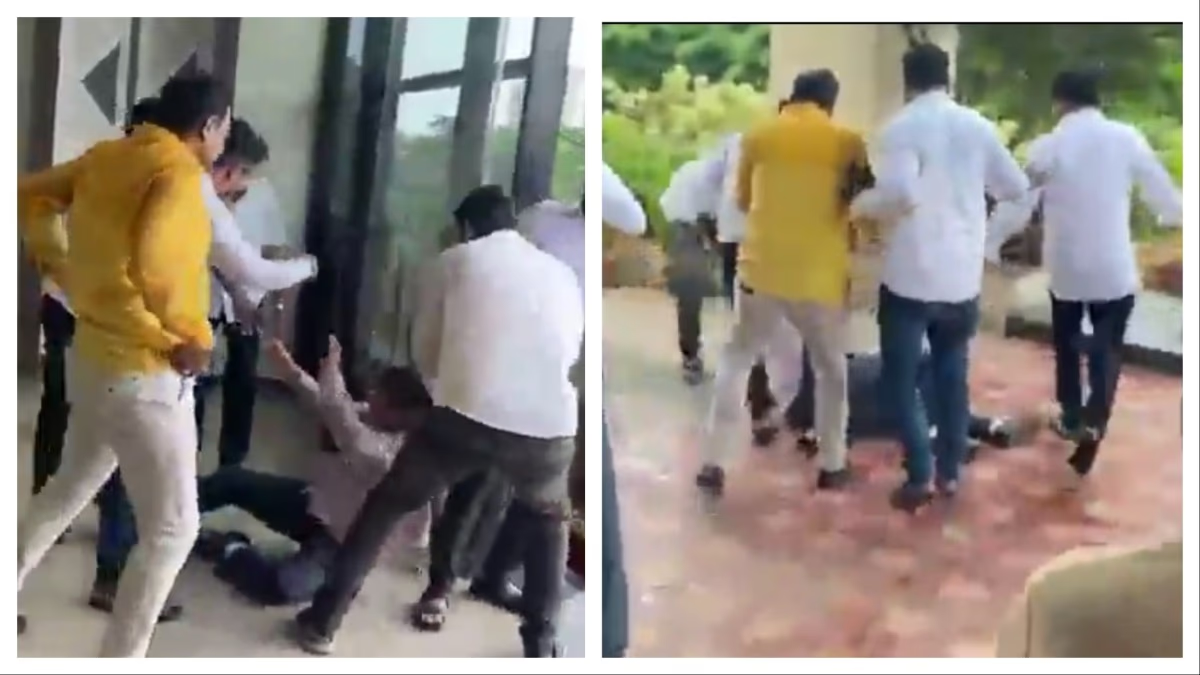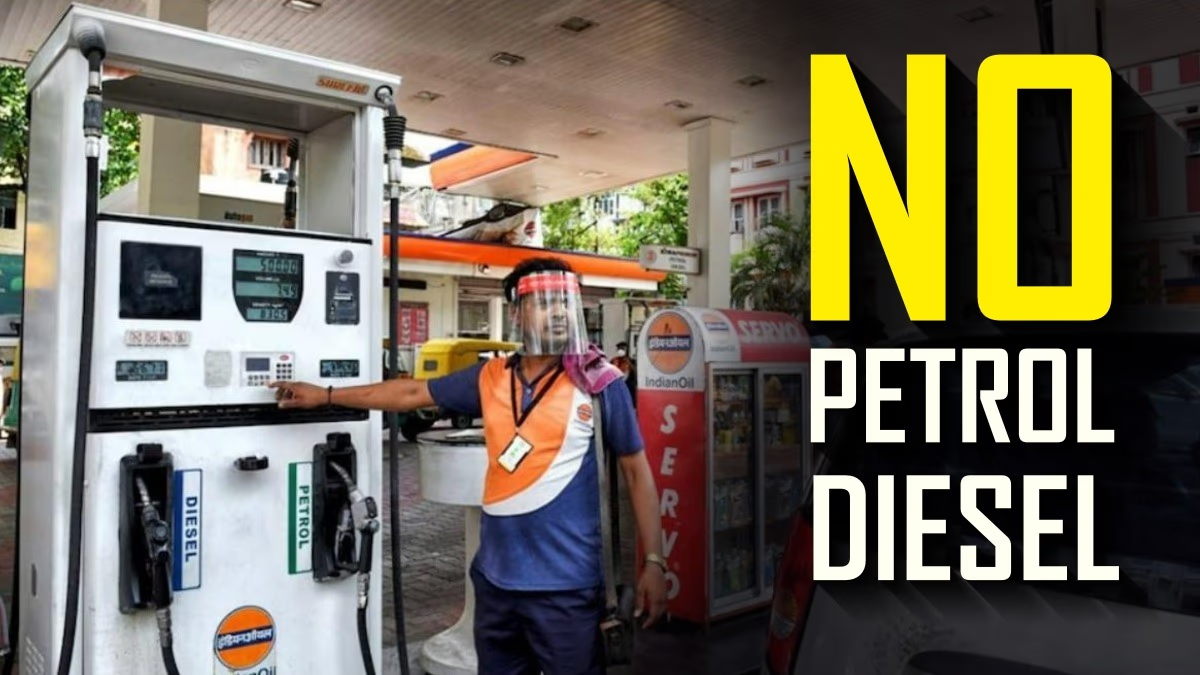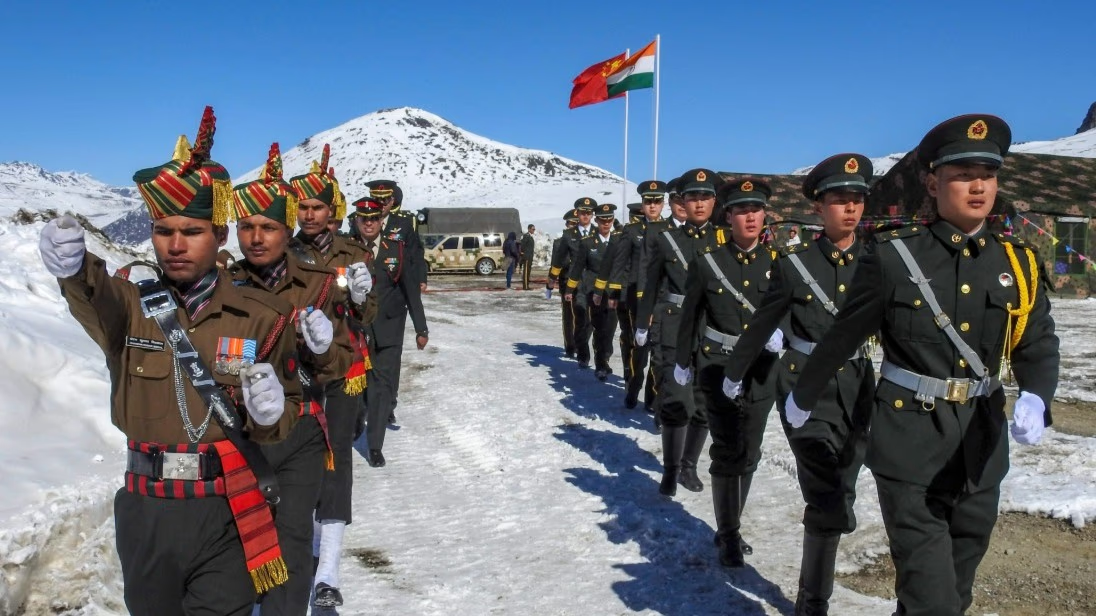Following incidents in Etawah and Kannauj, Prayagraj now reports caste violence. Initially, the Ahir Regiment held a Brahmin village hostage, now Bhim Army activists vandalize establishments of upper-caste shopkeepers in Prayagraj. Azad Samaj Party (Kanshiram) President and MP Chandrashekhar Azad was placed under house arrest Sunday while attempting to meet victims' families in Kaushambi and Karchana. Known for voicing against Dalit oppression, he protested with supporters at the Circuit House when detained.
Thousands of supporters protested against his house arrest, creating chaos on Karchana roads. Photos and videos abound of police cars being smashed and stones thrown at buses. Reports suggest damage to 8 police and 7 private vehicles. In Bhaderwa Market, Bhim Army targeted only upper-caste businesses. The PAC and RAF arrived at Karchana to control the situation with police arresting over 50 miscreants.
Around 8 PM, Chandrashekhar Azad was moved from Prayagraj to Varanasi under police presence, eventually to be sent to Delhi. Meanwhile, threats to his life have surfaced. The seeds of caste violence in Uttar Pradesh are surely being sown.
The Yaduvanshi (Ahir) community's demand for a separate Ahir Regiment in the Indian army aims to strengthen their social and military identity. Accusations against Bhim Army for vandalizing Ahir Regiment boards in March 2025 fueled tensions between Yadav and Dalit communities, extensively shared on social media.
Founded in 2015 by Chandrashekhar Azad, Bhim Army actively supports Dalit rights in regions like Saharanpur, Meerut, and Shamli in Western UP. Allegations of stone-pelting and violence during a protest in Karchana led to many injuries. This incident indicates anger directed at upper castes, especially Thakurs.
Never have Brahmin and Yadavs had significant tension in UP's history, yet recent months seem to depict never-ending animosity between them, largely fueled by social media narratives. While common people are scarcely involved, single sparks can ignite large fires, and this should not be taken lightly.
An alleged attack by Brahmins on Yadav storyteller Mukut Mani Yadav in Ahiraipur, Etawah, exacerbated tensions. Claims of cutting his hair and mistreatment surfaced. Samajwadi Party's Akhilesh Yadav's statements fueled perceptions of hatred against upper castes, simultaneously visiting astronaut family Shubham Shukla in Kanpur for damage control.
UP, India's most populous state, catalyzes ethnic and social dynamics due to diverse caste makeup. OBCs represent about 54.05% of the population, while upper castes such as Brahmins (12-14%) and Thakurs (7-8%) remain influential. Dalits, particularly Jatavs, constitute around 25% of people.
Post-independence, Congress ruled with an alliance of Dalits, upper castes, and Muslims, a regime dismantled by the OBC-centric Samajwadi Party during the Mandal era. BJP offset this shift, commandeering Congress's voter base with pro-Hindu policies, while BSP briefly influenced state politics with Dalit and extremely backward class backing.
Presently, BSP's decline and Brahmin unease with BJP activate parties to secure these votes, led by Samajwadi Party and BJP. Both aim for Dalit and Brahmin votes, using both enticing strategies and incitement against each other.
The perception of bias against upper castes, especially Brahmins and Thakurs, stems from historic inequalities. Dalits and OBCs view them as symbols of socio-economic dominance, aggravated by reservations and Mandal recommendations which upper castes believe reduced their opportunities. Rahul Gandhi intensifies caste divides with daily remarks pushing disparities.
Organizations like SP and Bhim Army target upper castes to consolidate Dalit and OBC support. Ramjilal Suman's remarks became SP's political tool against them. Akhilesh Yadav leveraged Karni Sena's protests, purportedly fueled by BJP, to amplify such anti-upper caste sentiments.
Incidents in Mathura, Prayagraj, Etawah, and Agra indicate social tension but do not necessarily conclude looming caste violence in UP. Despite strategic election alignments, Indian society's resilience curbs isolated incidents from culminating into greater conflicts. Though Karni Sena, Ahir Regiment, and Bhim Army evoke memories of Bihar’s 1990s caste strife, hatred hasn't escalated to genocidal levels yet.
BJP's hardline Hindu stance lacks opposition counter, who themselves attempt dismantling Hindu unity. Yet, Yogi Adityanath's resolve against such violence remains strong, employing the Gangster Act and NSA effectively.




